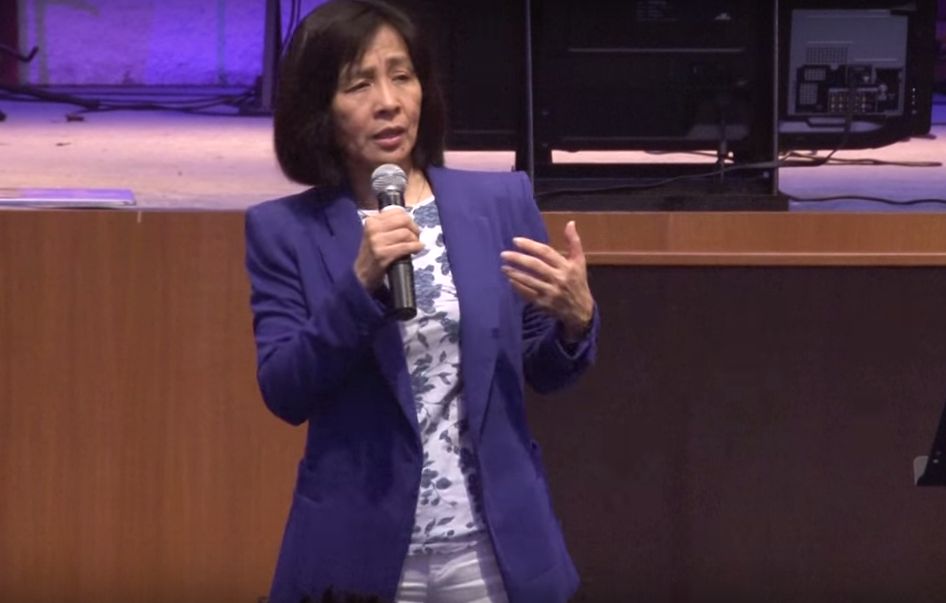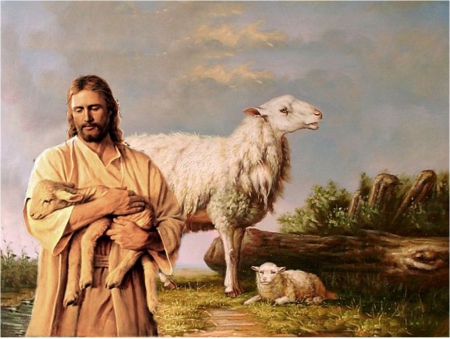
In Luke 18:9-14, there is a story about the prayers of a Pharisee and a tax collector. When it comes to following laws and rites, the Pharisee could boast of his own righteousness. The tax collector on the other hand is typically a man scorned by his own society, often viewed as a traitor to his own people.
Yet, in the message that Christ was sharing through this parable, Jesus was not interested in the outward look and the performance of these people. Jesus was looking at the heart issues of the two men.
What distinguished their individual prayers? The Pharisee was able to take pride in his standards of righteousness and of his status among the people. He had a self-righteous and scornful attitude, looking down on everyone who seemed to have not lived up to his standard.

The prayer of the tax collector, on the other hand, probably because of the societal factors that shaped him, was full of brokenness and humility, pleading for God’s mercy and for forgiveness, and esteeming himself the most abject of sinners. Yet, at the end of the day, Christ Himself states that it is the tax collector who returned justified.
This parable lends shape about what it means to be justified by God. Following on from a message about this parable that she shared the previous week, Pr Julie Khoo spoke in the young adults’ service at Glad Tidings PJ, about the justification that can only come from Christ.
‘It is not about you. It is about you touching God, and God touching you. At the end of the day, it is about coming to the reality, to being who we are, not trying to be who you’re not, not just trying to show who you’re not, but in being who you’re.’

‘You come to God just as who you’re. You do not worship Worship. You worship the Creator for who He is; the Alpha and Omega. It is in the core of our being; He is the Potter, we are the Clay. His ways are much higher than our ways,’ she expressed.
In the Biblical meaning of the word justified, it is a legal act that God declares that the sinner is innocent of his/her sin. It is not that the sinner now is sinless, but that he is declared sinless by a merciful God.
‘How can a tax collector be declared justified? The Pharisee purposely separated himself away from others and got as near to the holy place so that he would not be contaminated. The tax collector stood at the back in abject shame and yet the Lord declared the tax collector justified.’

There are three facts that surround the subject matter of God’s justification. First and foremost, there is no one righteous. Romans 3:10 says: As it is written: “There is no one righteous, not even one; When the Scripture emphasizes something in this manner, it is extremely important.
It has already been written that there is no one who can ever claim of their own righteousness in the face of an all-holy God. And yet immediately after, the Scripture emphasizes it again: not even one. King Solomon in all his wisdom recognized this, and even Abraham’s righteousness was credited upon him by God. Yet the tax collector returned home justified.
Secondly, there is no one who has not sinned. For all have sinned and fall short of the glory of God (Romans 3:23). ‘There is a profound sadness in this phrase fall short, because it means that we can come so close and still miss the mark,’ Pr Julie conveyed.

‘It is just like when you’re running a race and have come so close to the finishing line only to fall before we cross it and others then overtake you. You came so close but you have still fallen short.’ And the wages of sin is death but the gift of God is eternal life in Christ Jesus Our Lord (Romans 6:23).
There is a stain that no man can remove though we wash ourselves with lye, and the mark remains visible to God (Jeremiah 2:22). In the Hebrew context, lye is a potent remover instrument and it is caustic to the skin, yet it cannot remove the stain. The Lord says in Isaiah 1:18 that our sin is as scarlet as blood and red as crimson.
Pr Julie expressed that she is so glad that the Bible doesn’t use racist language, and that it doesn’t say that sin is black. Rather, it says that our sins are red. But there is a pointed meaning to the correlation. Whatever background, race, or nation we come from, we all bleed red when we’re cut. Sin is in our blood and no human is exempt from this fundamental problem.

So it is in fact not just the tax collector who is a sinner but the Pharisee and all of us as well. It is when we recognize these three facts that we recognize the magnitude of the problem. But the Lord also says that though our sin is scarlet, they shall be white as snow, though they are red as crimson, they shall be like wool. The realization of the three facts above also brings home to us the magnitude of God’s grace and mercy upon us and how crucial it is to fall upon His mercy.
How do we become justified in God’s presence? There must be present three things. Pr Julie conveyed that the recent Easter is not just another event or another celebration, and Hebrews 9 speaks meaningfully about the Blood of Christ.
Hebrews 9:12
He did not enter by means of the blood of goats and calves; but he entered the Most Holy Place once for all by his own blood, thus obtaining eternal redemption.
How significant is the Blood of Christ to us!

In order for us to saved from our sins, there must be a belief that God exists and that Christ died on the cross for our sins, that He is resurrected and that He is our sovereign Savior and Lord (Hebrews 11:6). Besides belief, there must also be faith, an assurance and conviction of these central facts and even of things yet unseen. One is a matter of the head, the other a matter of the heart. Together, it speaks about the believer’s whole being within the presence and will of God.
However, is it our faith or our belief alone that will save us, or something else? Many things in life, even among non-believers, require belief or faith. We miss the point when we leave Christ out of the picture.
It is not our faith or belief alone that will save us. Faith is primarily the medium through which we are saved. We are saved through our belief and faith, yes, but it is Christ’s grace that seals our salvation. And even our belief and faith is a gift from God (Ephesians 2:8). We are saved by God’s grace, through our faith. Christ, in His rightful place, is the primary agent of our salvation.

When we receive salvation through our faith by God’s grace, we also receive a new birth and justification. ‘It was not because the tax collector had a lot to offer to God. He merely said, “God, have mercy on me.”’ The tax collector pleaded on God’s mercy and God justified him out of His own mercy.
Many of us come before God just like the tax collector, feeling condemned, unworthy, pushed back. We need to reunderstand our position when we come before the Lord. He has made us and declared upon us a righteousness and justified our positions. This righteousness does not come from ourselves. Even the apostle Paul said that his righteousness was like a filthy rag.

When the Bible says that we’re righteous, it means that God puts the righteousness of Christ on us. And when the Father looks at us, He does not see our self-righteousness. He sees the righteousness of Christ that has been imputed, given to us. And because of that we can come boldly before the throne of God.
‘So if I were to meet the tax collector today, this is what I would tell him, “draw near”. If you have held yourselves away from His presence for a long time, it is time now to draw back to God, to return to Him with full assurance’ conveyed Pr Julie. We no longer have to stand far away and outside. There is now an open relationship with God. We do not have to come any more in condemnation but in humility and in full assurance of and gratitude for God’s promise. This is how it is.
|Share The Good News|
Jason Law
NOTE: Consisting mainly of young adults and college students, the Sat@5 celebration service at Glad Tidings PJ emphasizes on the need to be current yet relevant for Christ, a balance many have yet to master. The service aims to provide a platform where modern day issues can be addressed with good old-fashioned biblical principles. This article has not been vetted by the speaker or the church.




Leave a Reply